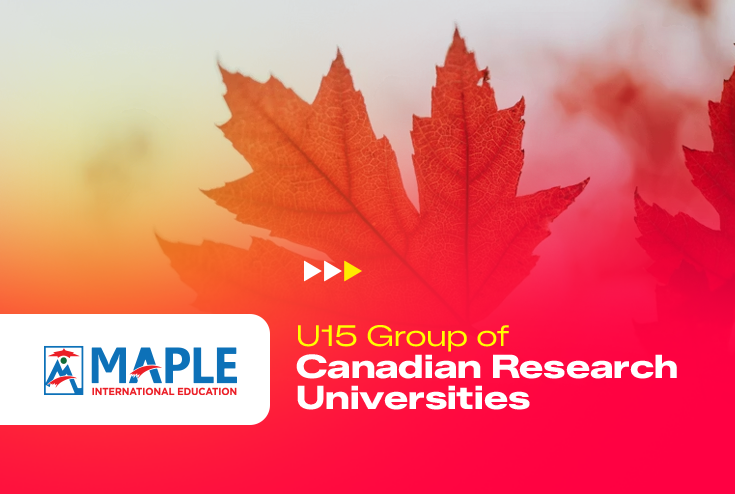
Study in Canada from Nepal: A 2026 Guide
Canada remains one of the top study destinations for Nepalese students due to its world-class education system, affordable tuition fees, post-study work opportunities, and welcoming immigration pathways. Whether you are planning for a Bachelor’s or a Master’s degree, Canada offers high-quality academic options, globally recognized degrees, and a real potential for long-term career success.
This 2026 guide covers everything you need to know: requirements, costs, scholarships, study permit process, living expenses, and tips to maximize your visa success rate.
Table of Contents
Top Reasons to Study in Canada from Nepal
Study a Bachelor’s Degree in Canada from Nepal
Popular Bachelor’s Programs for Nepalese Students
Study a Master’s Degree in Canada from Nepal
Popular Master’s Programs for Nepalese Students
Requirements to Study in Canada from Nepal
Requirements for a Bachelor’s Degree in Canada from Nepal
Requirements for a Master’s Degree in Canada from Nepal
Total Cost to Study in Canada from Nepal
Tuition Fees
Annual Living Costs
Additional Expenses
Scholarship Opportunities in Canada for International Students
Canada Student Visa from Nepal: Steps to Get a Study Permit
Canada Student Visa Success Rate from Nepal
Conclusion
FAQs - Study in Canada from Nepal
Top Reasons to Study in Canada from Nepal
Studying in Canada has become one of the most popular choices for Nepalese students due to its globally ranked universities, affordable education, high visa transparency, and strong post-study career opportunities. Canada offers a safe, multicultural environment, industry-focused programs, and clear pathways to work and permanent residency, making it an ideal destination for both bachelor’s and master’s studies.
1. Globally Ranked Universities
Canada houses top universities like the University of Toronto, UBC, McGill, and more, all known for research excellence and high employability outcomes.
2. Affordable Tuition + High Value
Compared to countries like the USA or Australia, Canadian tuition fees and living costs are more affordable, while the quality of education remains world-class.
3. Post-Graduation Work Permit (PGWP)
International students can work in Canada for up to 3 years after graduation, enabling strong career growth and PR pathways.
4. Safe, Diverse, and Student-Friendly
Canada consistently ranks among the safest countries globally and offers a multicultural environment ideal for Nepalese students.
5. Opportunities for Permanent Residency
Canada’s immigration policies are student-friendly, providing easier routes to becoming a permanent resident after gaining Canadian work experience.
Study a Bachelor’s Degree in Canada from Nepal
Studying a Bachelor’s degree in Canada offers Nepalese students a perfect blend of academic excellence, practical learning, and global career opportunities. Most undergraduate programs take 3 to 4 years to complete and are designed with strong industry alignment, co-op (paid internships), and real-world skill development. Canadian universities focus on hands-on learning, innovation, and employability, making graduates highly competitive in the global job market.Popular Bachelor’s Programs for Nepalese Students
1. Business & Management
Ideal for careers in entrepreneurship, marketing, finance, HR, retail, and international business. Many programs include co-ops that lead to job offers.
2. Computer Science & IT
A top choice due to Canada’s booming tech sector. Programs cover software development, cybersecurity, AI/ML, data science, and networking.
3. Nursing & Healthcare
High demand worldwide. Graduates often secure well-paying jobs and have strong PR pathways.
4. Engineering & Applied Sciences
Includes Civil, Mechanical, Electrical, Software, Chemical, and Environmental Engineering, with excellent starting salaries.
5. Hospitality & Tourism Management
Canada’s tourism and hospitality industry creates strong job prospects, especially in provinces like British Columbia and Ontario.
6. Environmental & Earth Sciences
Growing relevance due to Canada’s focus on sustainability, climate studies, conservation, and resource management.
7. Psychology & Social Sciences
Popular for students interested in social work, counseling, behavioral science, HR, and community development.
Study a Master’s Degree in Canada from Nepal
Pursuing a Master’s degree in Canada is a highly rewarding option for Nepalese students seeking advanced academic training, global exposure, and strong career outcomes. Canadian graduate programs are recognized for their research excellence, modern curriculum, industry partnerships, and high employability rates.
Master’s programs in Canada typically take 1 to 2 years to complete and are offered in thesis-based, course-based, and professional formats. This flexibility allows students to choose a program that aligns with their career plans, whether they aim for research, specialization, leadership roles, or immigration pathways. Canadian master’s degrees are globally respected and open doors to well-paying jobs across sectors such as technology, healthcare, business, engineering, and public policy.
For Nepalese students, studying a Master’s in Canada also provides access to internships, co-op placements, paid research assistantships (RA), and teaching assistantships (TA), helping reduce costs and gain Canadian work experience.
Popular Master’s Programs for Nepalese Students
1. Master of Business Administration (MBA)
Designed for leadership and management careers. Programs often include internships, case studies, and corporate networking opportunities.
2. Master’s in Engineering (MEng / MASc / MSc)
Specializations include Civil, Electrical, Mechanical, Software, and Chemical Engineering. Research-based programs are ideal for students targeting doctoral studies.
3. Public Health (MPH)
A rapidly growing field due to high global demand. Students gain skills in epidemiology, health policy, and community health management.
4. Data Science, AI, and Computer Science (MSc)
Among the most competitive and in-demand fields. Graduates are recruited into roles in analytics, software engineering, cybersecurity, and AI/ML.
5. Nursing & Healthcare Management
Perfect for medical and nursing graduates seeking advanced training and better global opportunities.
6. Project Management & Supply Chain Management
Industries across Canada: construction, IT, manufacturing, and logistics, actively hire graduates from these programs.
7. Environmental Science & Sustainability Studies
A strong fit for Canada’s focus on climate change, conservation, and green technologies.
Requirements to Study in Canada from Nepal
To study in Canada from Nepal, students must meet academic qualifications, prove English language proficiency, and submit complete supporting documents that demonstrate genuine study intent and financial capacity. Requirements vary slightly for Bachelor’s and Master’s programs, but all students must show strong academics, clear program relevance, and properly prepared documents to increase admission and visa success. Below is a clean breakdown of what Nepalese students need for each level.
Requirements for a Bachelor’s Degree in Canada from Nepal
1. Academic Requirements
Completion of +2 / PCL / A-Levels or equivalent
Minimum GPA 2.8 to 3.0 (higher for competitive programs)
Subjects aligned with chosen program (e.g., Math for Business/IT, Science for Nursing/Engineering)
2. Language Requirements
IELTS: 6.0 to 6.5 overall (no band below 5.5/6 depending on institution)
PTE Academic: 58–60+
TOEFL iBT: 80–90+
3. Additional Documentation Requirements
Passport (valid for the study duration)
Academic transcripts, character certificate, and provisional certificates
Statement of Purpose (SOP)
Recommendation letters
Proof of funds (first-year tuition + CAD 22,895 living expense + travel expenses)
Tuition fee payment receipt or deposit
Medical exam
Requirements for a Master’s Degree in Canada from Nepal
1. Academic Requirements
A recognized Bachelor’s degree (3 to 4 years)
Minimum CGPA 2.8 to 3.0 (competitive programs require 3.0+)
Relevant academic background for the chosen field
Some programs (MBA, MPH, MEng) may require work experience
2. Language Requirements
IELTS: 6.5 overall (no band below 6.0)
PTE: 60–65+
TOEFL iBT: 90–100+
GMAT/GRE (only for specific programs like MBA, MSc, or research-based degrees)
3. Additional Documentation Requirements
Academic transcripts, degree certificate, and migration certificate
Updated CV/Resume
Statement of Purpose (SOP) highlighting research or career goals
2 to 3 Recommendation Letters (academic or employer)
Proof of funds (tuition + CAD 22,895 living expense)
Tuition payment/deposit
Medical exam
Research proposal (for thesis-based programs)
Total Cost to Study in Canada from Nepal
The total cost to study in Canada from Nepal generally ranges from NPR 25 lakhs to 55 lakhs per year, depending on the program, university, province, and lifestyle. This cost includes tuition fees, living expenses, health insurance, transportation, books, and additional processing charges. While Bachelor’s programs tend to be slightly more affordable, Master’s programs, especially in engineering, business, and STEM fields, often have higher tuition fees.
Below is a clear breakdown of all major expenses Nepalese students should expect when planning their studies in Canada.
Tuition Fees
For Bachelor’s: NPR 12 to 26 lakhs/year
For Master’s: NPR 16 to 35 lakhs/year
Annual Living Costs
Accommodation: NPR 7 to 12 lakhs
Food & groceries: NPR 3 to 5 lakhs
Transportation & utilities: NPR 1 to 2 lakhs
Miscellaneous: NPR 1 to 2 lakhs
Estimated Total Living Cost: NPR 13 to 20 lakhs/year
Additional Expenses
University/College application fee: NPR 7,000 to 15,000
Visa fee: CAD $ 235 (NPR 24,000 approx.)
Medical exam: NPR 10,000 to 15,000
Airfare: NPR 100,000 to 150,000
Scholarship Opportunities in Canada for International Students
Canada offers a wide range of fully funded and partially funded scholarships designed to support high-achieving international students, including those from Nepal. These scholarships are provided by the Canadian government, universities, and external organizations to help reduce tuition costs, reward academic excellence, and promote global diversity on Canadian campuses.
For Nepalese students, scholarships can significantly lower overall study expenses, especially at the undergraduate and graduate levels, making Canada a more affordable and accessible study destination. Below are some of the most popular scholarships, so you can explore eligibility, deadlines, and application requirements.
Major Scholarships in Canada for International Students
1. Lester B. Pearson International Scholarship – University of Toronto
One of Canada’s most prestigious fully funded scholarships for exceptional international students demonstrating strong academic performance and leadership.
2. UBC International Scholars Program – University of British Columbia (UBC)
The UBC International Scholars Program is for international students who have demonstrated leadership qualities, exceptional contributions to their communities, outstanding academic performance, and require meaningful financial support to attend UBC.
There are four categories of prestigious need-and-merit-based awards available through UBC’s International Scholars Program:
Karen McKellin International Leader of Tomorrow Award
Donald A. Wehrung International Student Award
International Impact Award
Vantage One Excellence Award
4. President's International Scholarship of Excellence - York University
International awards valued at $180,000 ($45,000 x 4 years)
The President's International Scholarship of Excellence will be awarded to international high school applicants who demonstrate academic excellence, commitment to volunteer work and extracurricular activities, and leadership skills. Recipients will represent a variety of regions around the world and will be referred to as 'President's International Scholars'.
5. Canada Graduate Research Scholarship – Doctoral program
A prestigious PhD-level scholarship offering CAD 40,000 per year for students who show exceptional academic, research, and leadership qualities.
6. Ontario Graduate Scholarship (OGS)
Students in graduate studies at the master’s and doctoral levels can apply for a merit-based scholarship through the Ontario Graduate Scholarship (OGS) Program. Awards are available to graduate students for all disciplines of academic study at participating schools in Ontario.
7. Canadian Commonwealth Scholarship (Graduate Studies)
Funded by the Government of Canada, this scholarship supports graduate-level students from Commonwealth countries, including Nepal.
8. University Entrance Scholarships (Multiple Universities)
Most Canadian universities offer automatic entrance scholarships to new undergraduate students based on high school or +2 academic performance, no separate application required.
Check the individual university scholarship pages of your preferred university.
Canada Student Visa from Nepal: Steps to Get a Study Permit
Getting a study visa for Canada from Nepal requires completing specific documentation, proving financial ability, and demonstrating a genuine intent to study. The process is straightforward when each step is followed properly, starting from selecting the right program to submitting your application with complete financial and academic proof.
Below is a simple step-by-step guide to help Nepalese students navigate the Canadian study permit process smoothly.
1. Choose a Program and DLI Institution
Select a program that aligns with your academic background and apply only to Designated Learning Institutions (DLIs) approved by the Government of Canada.
2. Receive Your Letter of Acceptance (LOA)
Once admitted, the institution will provide an official LOA, which is required to start your visa application.
3. Pay the Tuition Deposit
Most institutions require students to pay the first-year tuition or partial deposit to secure their seat and strengthen their visa file.
4. Prepare All Required Documents
Gather your academic transcripts, SOP, passport, proof of funds, and other supporting documents needed.
5. Submit Your Study Permit Application Online
Create an IRCC account, upload your documents, complete the forms, and pay the visa and biometric fees.
6. Provide Biometrics
Visit the VFS Global VAC in Kathmandu to submit your fingerprints and photo after receiving the biometrics instruction letter.
7. Complete Medical Examination (IME)
Undergo a medical test at an IRCC-approved hospital or clinic and upload your medical report (e-medical).
8. Wait for the Visa Decision
IRCC will review your profile, verify your documents, and issue the final decision when your documents are complete.
Canada Student Visa Success Rate from Nepal
Visa success rates for a Canada study permit can vary depending on:
Strong financial proof
A convincing SOP
Genuine study intent
Program relevance to previous academics
Proper documentation under SDS
In general, students with strong academic backgrounds, proper financials, and a well-structured SOP experience significantly higher approval rates.
Conclusion
Canada continues to be a top destination for Nepalese students seeking high-quality education, affordable living, and long-term career opportunities. With proper planning, the right university selection, a strong SOP, and complete financial documentation, your chances of securing a Canadian study permit increase dramatically.
If you need expert guidance for university selection, SOP writing, application processing, scholarships, or a strong visa file, our team is here to help.
Contact us today for a free consultation and start your journey to Canada!
Your future in Canada begins with the right guidance. Let’s make it happen.
FAQs - Study in Canada from Nepal
1. How much does it cost to study in Canada from Nepal?
The total cost to study in Canada from Nepal ranges from NPR 25 lakhs to 55 lakhs per year, depending on the program, university, and province. This includes tuition fees, living expenses, health insurance, transportation, and other processing costs.
2. How much GPA is required to study in Canada from Nepal?
Students typically need a minimum GPA of 2.8 to 3.0 in their highest completed degree for admission to Canadian universities, with competitive programs expecting 3.0 or above.
3. How much money is required to go to Canada from Nepal?
Nepalese students must show funds covering one year of tuition + CAD 22,895 for living expenses and other travel expenses. Additional expenses include visa fees, medical tests, airfare, and tuition deposits, bringing the total initial requirement to approximately NPR 30 to 45 lakhs, depending on the university and program.
4. Is Canada good for Nepali students?
Yes, Canada is one of the best choices for Nepali students due to its globally ranked universities, affordable education, safe environment, multicultural society, and strong post-study work opportunities. Flexible immigration pathways and high employability also make Canada a top destination.
5. Can I get PR if I study in Canada?
Yes. Many international students gain Permanent Residency (PR) through pathways like the Post-Graduation Work Permit (PGWP) followed by Express Entry, Canadian Experience Class (CEC), or Provincial Nominee Programs (PNPs). Gaining Canadian education and work experience significantly improves PR eligibility.




